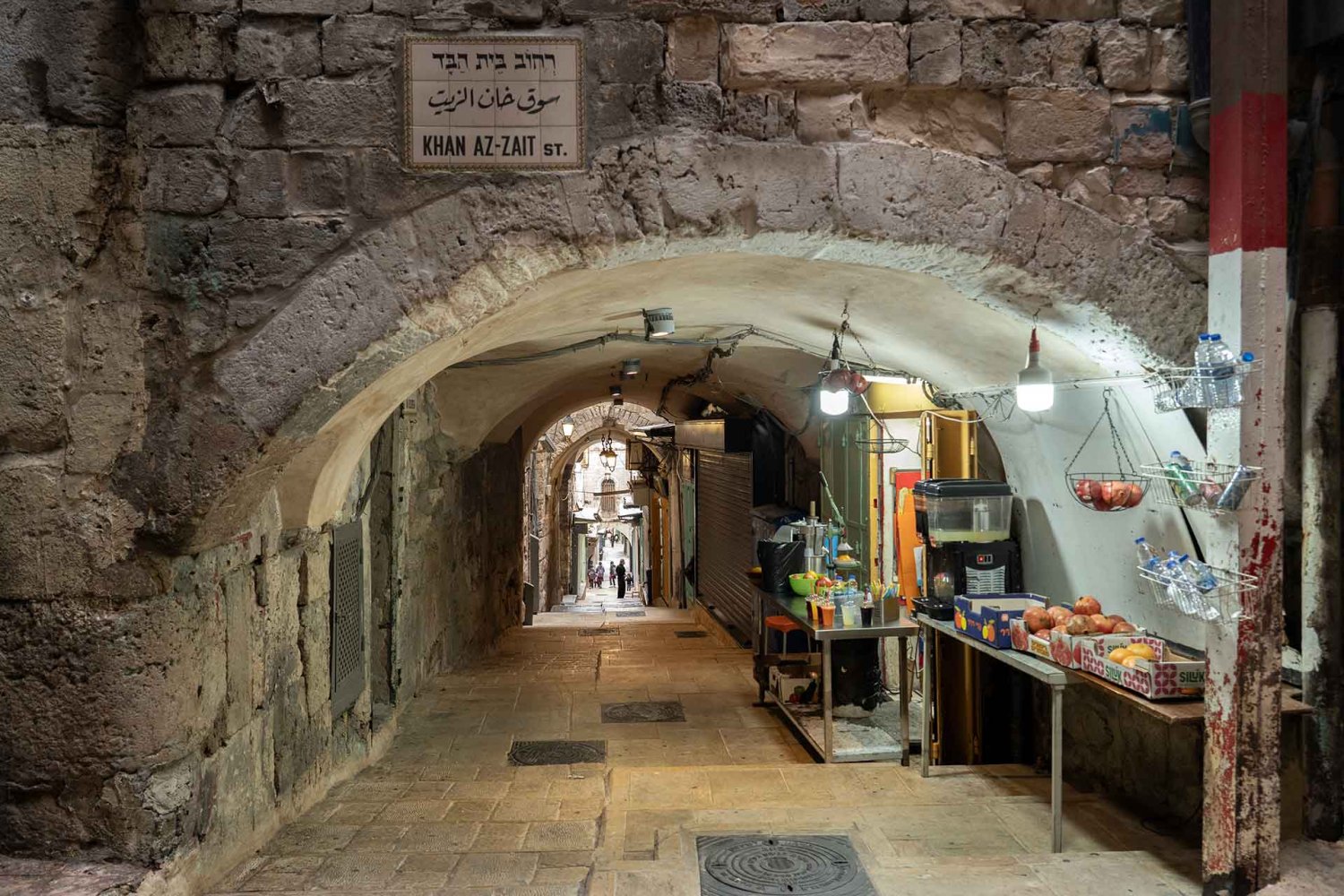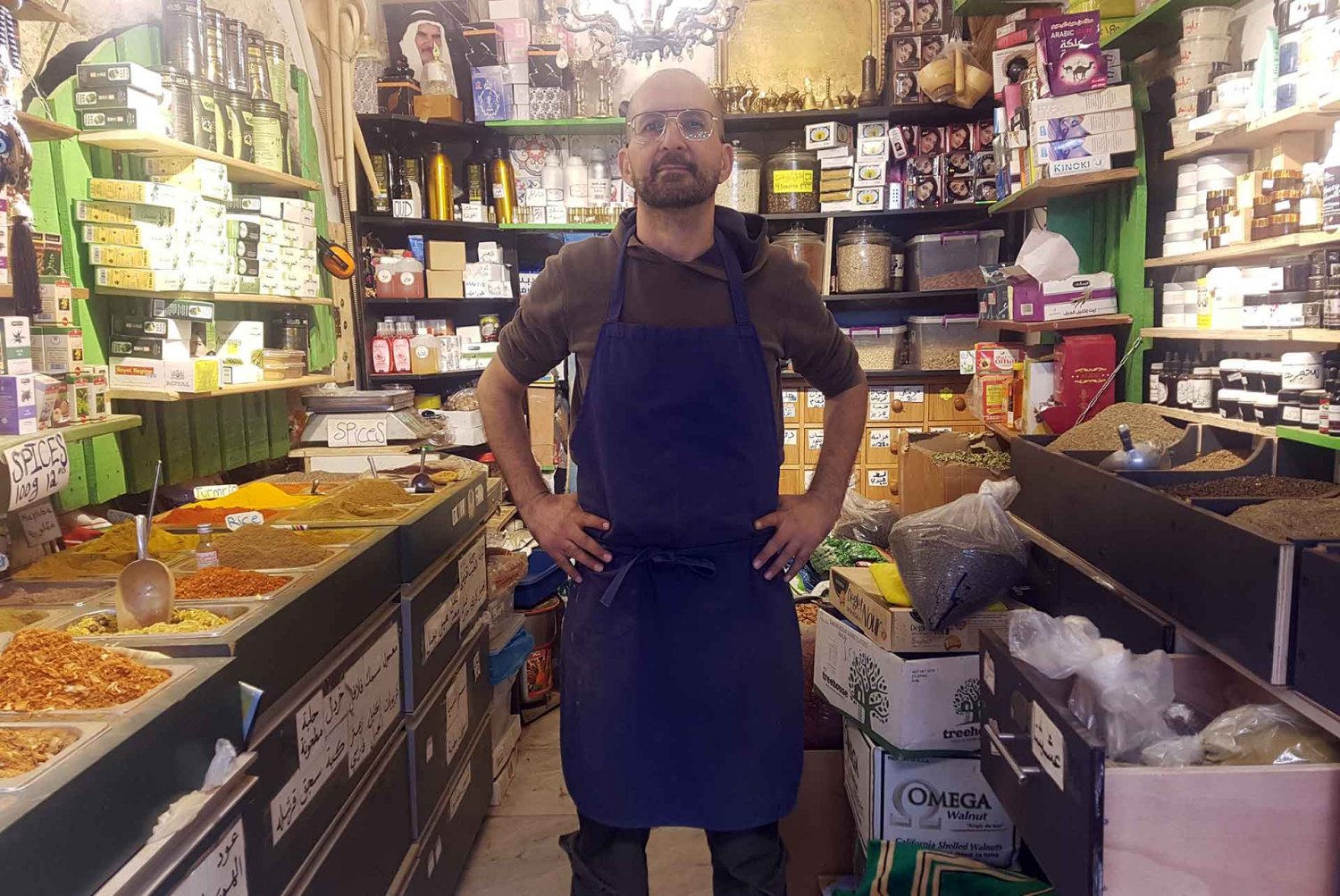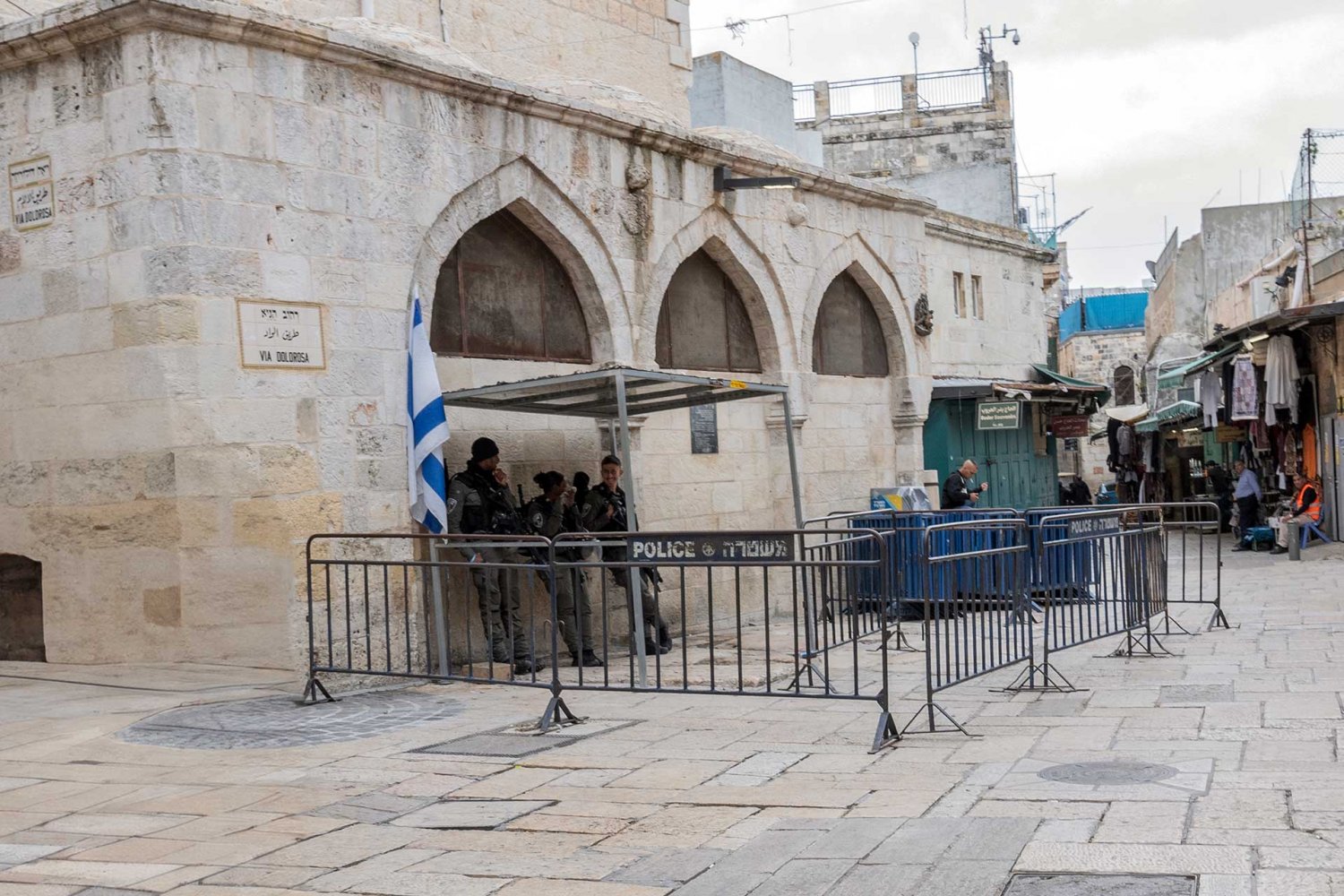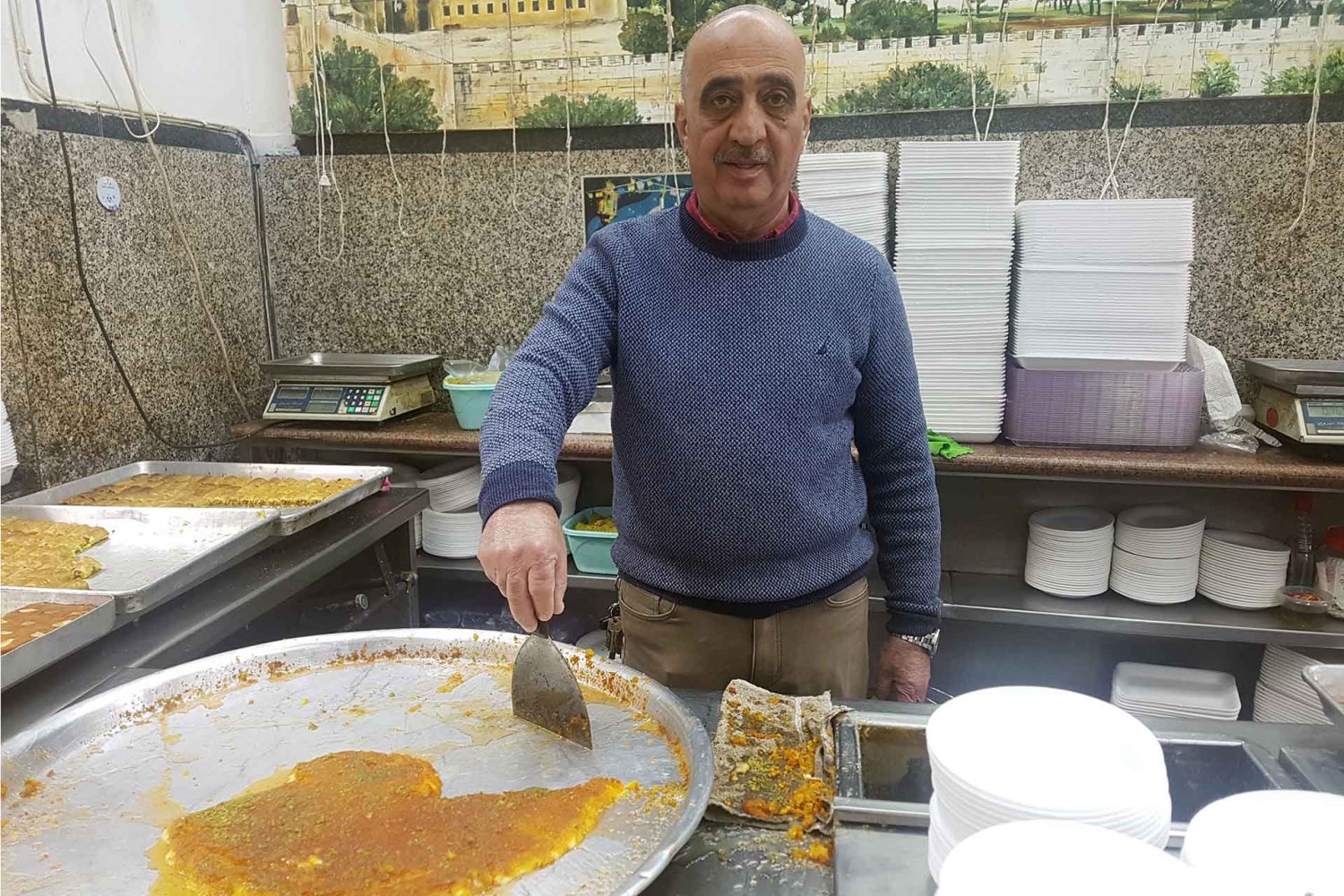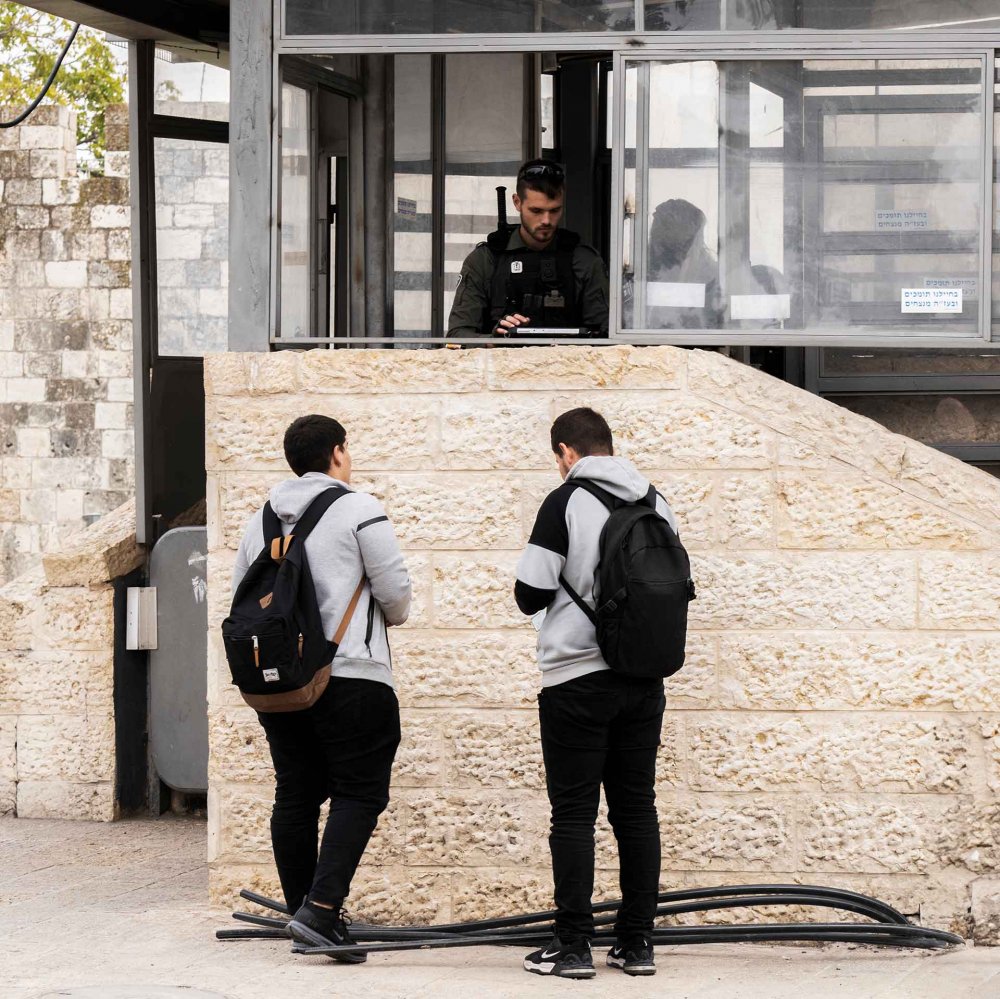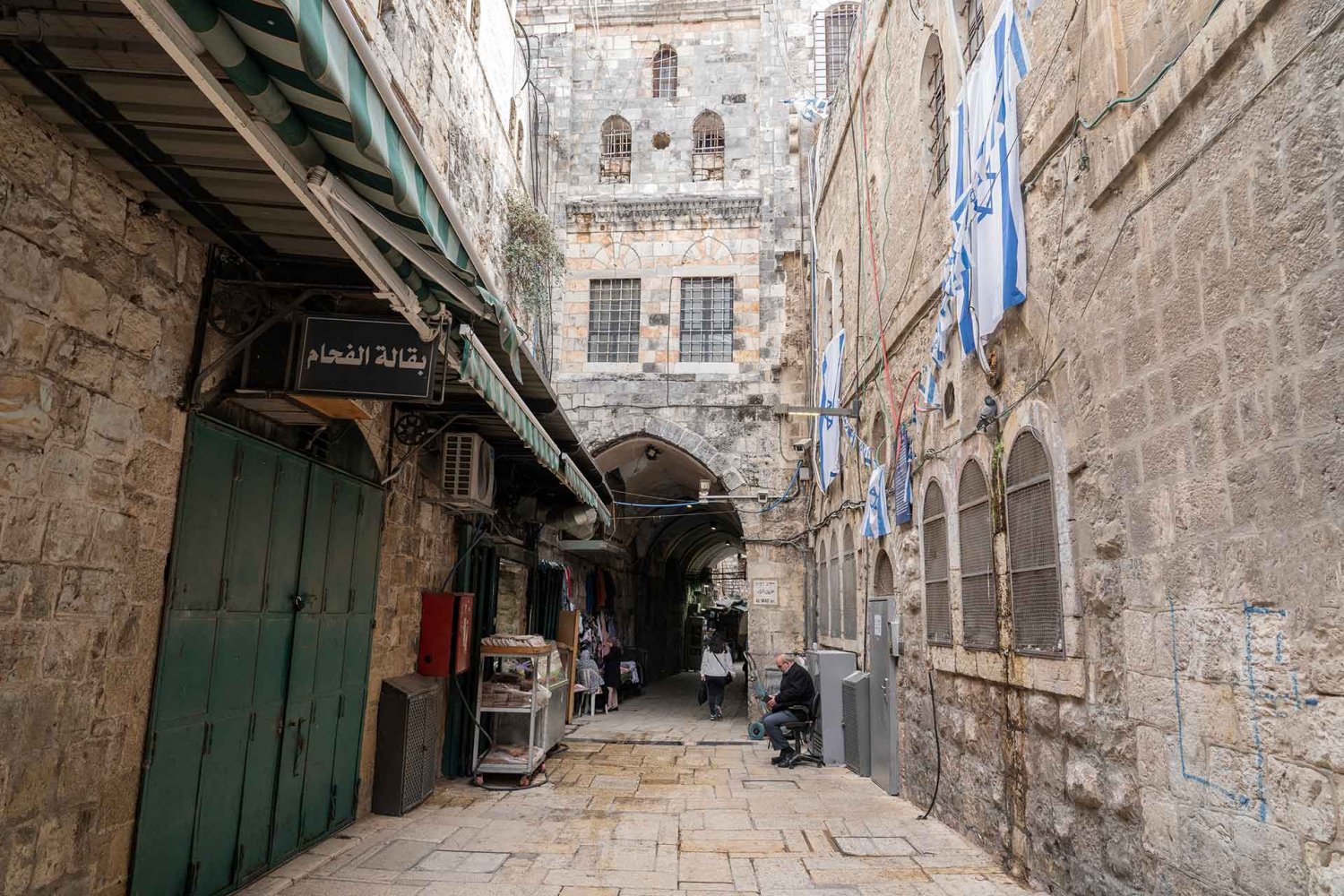Othman maintains that his income has dropped by 70 percent since October 7 and that making a living has become a daily dilemma in light of the occupation soldiers’ aggressive behavior, which does not differentiate between the elderly, women, youths, and children.2 However, he is determined to open his shop and prepare the most delicious types of oriental sweets, especially knafeh.
The predicament of these two merchants is similar to that of approximately 1,000 merchants seeking to revive the Old City and revitalize it by keeping its markets open. According to the Secretary of the Arab Chamber of Commerce and Industry in Jerusalem, Hijazi al-Rishq, the Old City has 1,372 commercial stores. From 1967 up to the onset of the coronavirus pandemic, 312 of these stores have closed due to the tightening constraints on merchants, and arbitrary measures such as taxes, fines, and others. By the beginning of 2023, as many as 352 shops, an increase of 17 percent, had closed.3 And this is all before October 7, 2023.
Among the most affected commercial establishments since the start of the current war are the 462 shops associated with the tourism industry, and specifically antiques and souvenir shops. They make up 34 percent of the total shops in the Old City, al-Rishq, and they cannot open their doors at all due to the absence of tourists, which has become a reality days after the outbreak of war and the closure of Ben Gurion International Airport.
In a tour organized by al-Rishq of the Old City markets, which he described as “miserable and painful,” he said he was surprised that since October 7, all segments of merchants were affected by the war, and the recession was not limited to the shops that depend on tourism.
Al-Rishq confirmed that 34 percent of the shops were completely affected and had to close, while 57 percent were significantly impacted. Stores selling groceries, meat, poultry, and daily necessities for the residents of the Old City—about 9 percent of the total—were mildly affected, he said.
Al-Rishq attributes the current state of decline in the markets to several factors, including the closure of the military checkpoints leading to Jerusalem, especially Qalandiya, al-Za‘ayim, and Shu‘fat refugee camp at times, and the tightening of crossing procedures at other times, which have greatly reduced the number of Jerusalemites entering to the Old City.

